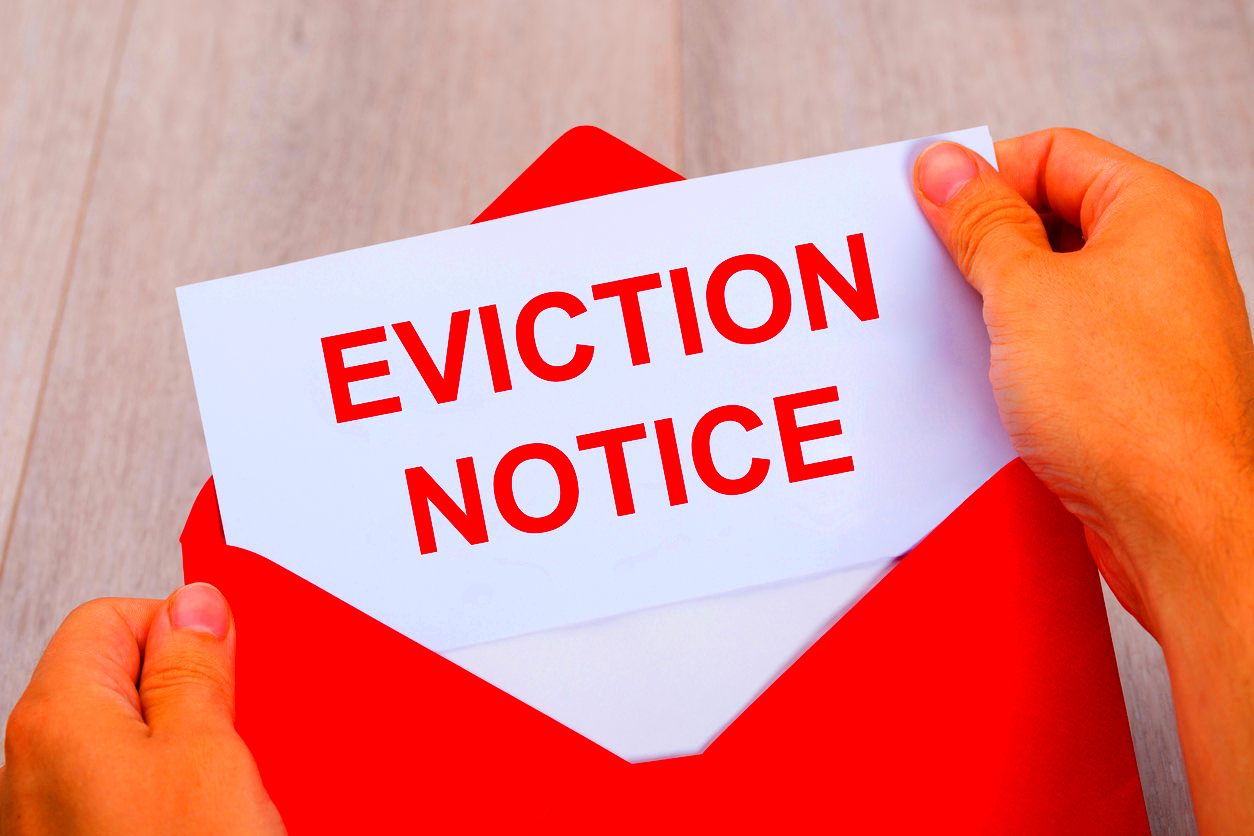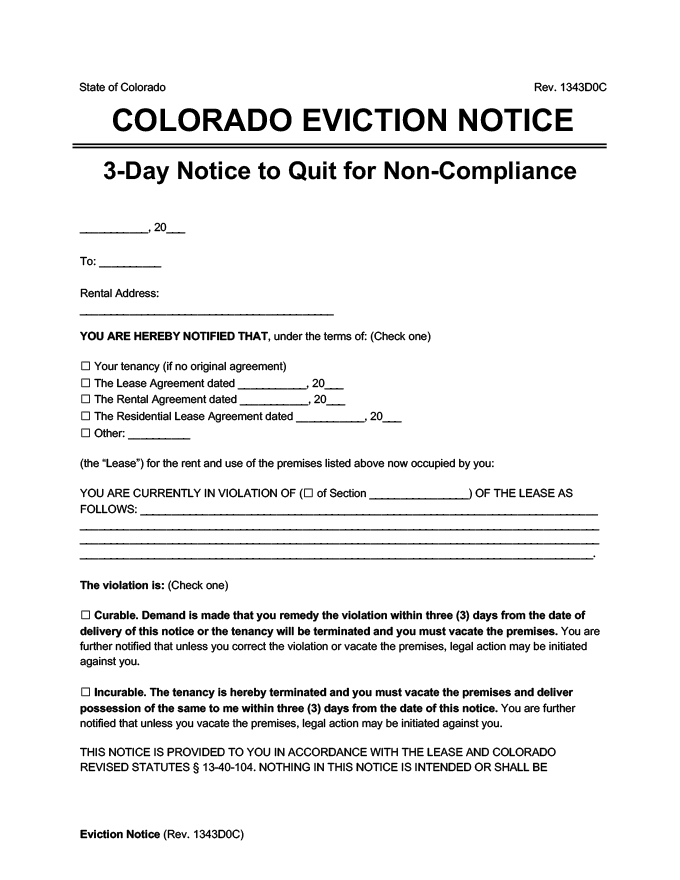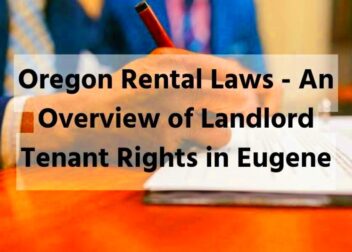What You Need to Know About Colorado Tenant Eviction Laws
Understanding tenant eviction laws in Colorado is crucial for both landlords and tenants. These laws outline the rights and responsibilities of each party, helping to ensure fair treatment in housing situations. Knowing these laws can help avoid legal issues and ensure a smoother rental experience. In this guide, we will break down the key aspects of eviction laws in Colorado, focusing on what you need to know if you’re a tenant facing eviction or a landlord considering the process.
Understanding the Grounds for Eviction in Colorado

In Colorado, a landlord can evict a tenant for several specific reasons. Here are the most common grounds for eviction:
- Non-Payment of Rent: If a tenant fails to pay rent on time, this is a valid reason for eviction.
- Violation of Lease Terms: Any breach of the lease agreement, such as unauthorized pets or smoking, can lead to eviction.
- Property Damage: Significant damage to the rental property can justify eviction.
- Illegal Activities: Engaging in illegal activities on the premises is a clear ground for eviction.
- Failure to Vacate: If a tenant refuses to leave after the lease ends or after an eviction notice, a landlord can initiate the eviction process.
It’s essential for tenants to know their rights and understand the reasons for eviction to defend themselves effectively if needed.
The Eviction Process Explained
The eviction process in Colorado involves several steps that landlords must follow. Here’s a detailed overview:
- Notice to Tenant: Before filing for eviction, landlords must provide proper notice to the tenant, depending on the reason for eviction. The most common notices are:
- 3-Day Notice for Non-Payment of Rent
- 7-Day Notice for Lease Violations
- 10-Day Notice for Unlawful Activities
- Filing an Eviction Lawsuit: If the tenant does not comply with the notice, the landlord can file a lawsuit in the appropriate court. This is often called an “unlawful detainer” action.
- Hearing: A court hearing will be scheduled where both parties can present their cases. It’s important for tenants to attend this hearing.
- Judgment: If the court rules in favor of the landlord, they will issue a judgment for eviction.
- Writ of Possession: After the judgment, the landlord can request a writ of possession, allowing law enforcement to remove the tenant if they do not leave voluntarily.
Following these steps ensures that landlords comply with Colorado law, protecting both their rights and those of the tenant.
Notice Requirements Before Eviction
Before a landlord can initiate the eviction process in Colorado, they must provide the tenant with a proper notice. This step is crucial as it gives tenants a chance to remedy the situation or prepare for the next steps. The type of notice depends on the reason for eviction and must comply with state law.
Here are the common types of notices:
- 3-Day Notice: This notice is for tenants who have not paid their rent. It gives them three days to pay the owed rent or face eviction proceedings.
- 7-Day Notice: If the tenant has violated a lease term (such as having pets when prohibited), the landlord can issue this notice. The tenant has seven days to correct the issue or face eviction.
- 10-Day Notice: This notice applies when a tenant is involved in illegal activities on the property. It provides ten days to vacate.
It’s important for landlords to ensure that these notices are served correctly. Notices can be delivered in person, via mail, or posted on the door of the rental property. Keeping a record of the notice delivery is essential in case of legal disputes later on.
Tenant Rights During Eviction
Understanding tenant rights during an eviction process is crucial for anyone renting a home in Colorado. Tenants have specific protections under state law, ensuring fair treatment and preventing unlawful evictions. Here are key rights every tenant should know:
- Right to Receive Proper Notice: Tenants must receive the correct type of notice before eviction proceedings can begin.
- Right to a Hearing: Tenants have the right to contest an eviction in court and present their case before a judge.
- Protection Against Retaliation: A landlord cannot evict a tenant as retaliation for exercising their legal rights, such as reporting unsafe living conditions.
- Right to Legal Representation: Tenants can seek legal help during eviction proceedings, ensuring they have support in navigating the process.
Being aware of these rights can empower tenants to stand up against unjust eviction attempts and ensure they are treated fairly throughout the process.
Defending Against an Eviction in Colorado
If you’re facing eviction in Colorado, it’s important to know that you have options for defending yourself. Understanding the defenses available can help you navigate the situation more effectively. Here are some common strategies tenants can use:
- Challenge the Notice: Ensure that the landlord followed all legal notice requirements. If they didn’t, you may have grounds to contest the eviction.
- Prove the Rent Was Paid: If the eviction is due to non-payment of rent, gather evidence (like bank statements or receipts) to show that you paid your rent on time.
- Document Lease Violations: If the eviction is based on lease violations, present evidence that disproves these claims. For example, if the landlord claims you have pets but you don’t, provide proof.
- Argue Unlawful Eviction: If you believe the eviction is retaliatory or discriminatory, you can argue that it violates tenant protection laws.
Consider seeking legal assistance if you believe you have a solid defense. A lawyer can help you navigate the court process and ensure your rights are protected. Remember, being informed and prepared can make a significant difference in the outcome of an eviction case.
Steps After an Eviction Judgment
Once a court has ruled in favor of the landlord in an eviction case, it’s essential to understand the next steps. These steps can vary depending on whether you’re the landlord or the tenant. Here’s a breakdown of what to expect after an eviction judgment:
- For Landlords:
- Writ of Possession: The landlord can request a writ of possession from the court. This document allows law enforcement to remove the tenant if they do not leave voluntarily.
- Schedule the Eviction: Once the writ is obtained, the landlord will need to work with local law enforcement to schedule the eviction date.
- Change the Locks: After the eviction is carried out, the landlord may change the locks to prevent the tenant from re-entering.
- For Tenants:
- Time to Move: After the judgment, tenants typically have a few days to vacate the property, depending on local laws and the specifics of the case.
- Seek Legal Help: If the tenant believes the judgment was unfair, they can seek legal assistance to explore options, such as filing an appeal.
- Document Personal Property: Before leaving, tenants should document their belongings and ensure they take all personal property with them to avoid disputes later.
Understanding these steps can help both landlords and tenants navigate the post-judgment phase more smoothly.
Frequently Asked Questions About Colorado Tenant Eviction Laws
Many people have questions about tenant eviction laws in Colorado. Here are some of the most frequently asked questions to help clarify common concerns:
- What is the notice period for eviction? The notice period varies depending on the reason for eviction, typically ranging from three to ten days.
- Can a landlord evict a tenant during winter? Yes, but local ordinances may apply, so it’s essential to check specific regulations in your area.
- Do tenants have the right to appeal an eviction judgment? Yes, tenants can appeal the decision within a specified timeframe if they believe the judgment was unjust.
- What happens if a tenant refuses to leave? If a tenant does not leave after an eviction judgment, the landlord can request law enforcement to carry out the eviction.
- Are there protections for tenants facing eviction? Yes, tenants have rights against retaliatory evictions and can seek legal assistance if they believe their rights are being violated.
These FAQs can help tenants and landlords understand their rights and responsibilities, making the eviction process clearer and more manageable.
Conclusion on Colorado Tenant Eviction Laws
Understanding Colorado tenant eviction laws is vital for both landlords and tenants. By being informed about the eviction process, the grounds for eviction, and tenant rights, both parties can ensure a smoother experience in the rental market. Tenants should feel empowered to defend their rights, while landlords must adhere to legal protocols to avoid disputes.
Whether you’re a landlord looking to manage your rental property effectively or a tenant facing eviction, knowledge is your best ally. Stay informed, seek help when needed, and approach the process with an understanding of your rights and responsibilities. This way, you can navigate the complexities of eviction laws in Colorado with confidence and clarity.


